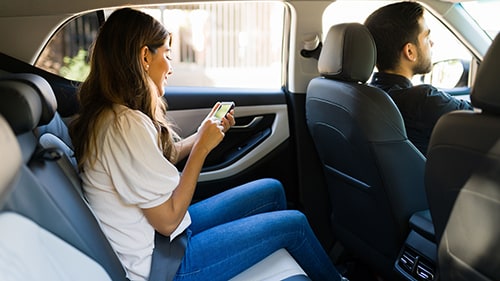In recent years, there has been a growing concern over the safety of ridesharing services such as Uber and Lyft. Many riders have reported instances of assault, ranging from verbal harassment to physical abuse, at the hands of their drivers. In response to these alarming reports, a mass tort lawsuit was filed against the two companies, alleging that they had not done enough to protect passengers from these dangerous situations.
The mass tort case, which was filed on behalf of numerous victims of rideshare assault, claimed that Uber and Lyft had failed to properly screen and vet their drivers, and had not implemented adequate safety measures to protect riders. The plaintiffs argued that these lapses in safety had led to numerous instances of assault, and that the companies should be held liable for the harm caused to their victims.
After a prolonged legal battle, a settlement was reached in which Uber and Lyft agreed to pay significant compensation to the victims of rideshare assault. The total amount of the settlement has not been disclosed, but it is believed to be in the millions of dollars.
The Importance of Screening and Vetting Drivers
One of the key issues at the center of the mass tort case was the companies’ failure to properly screen and vet their drivers. Uber and Lyft both rely heavily on independent contractors to provide rides to their customers, and the plaintiffs argued that the companies had not done enough to ensure that these drivers were safe and trustworthy.
In particular, the plaintiffs claimed that Uber and Lyft had not conducted thorough background checks on their drivers, and had not implemented adequate safety protocols to protect riders from assault. They also argued that the companies had not done enough to monitor driver behavior and address any reports of misconduct.
The settlement reached in the case suggests that the companies may have been found liable for these lapses in safety, and that they have recognized the importance of properly screening and vetting their drivers to prevent future instances of assault.
Ensuring Safety Measures for Passengers
Another important aspect of the mass tort case was the plaintiffs’ claim that Uber and Lyft had not implemented adequate safety measures to protect riders from assault. They argued that the companies had not provided a clear and efficient way for passengers to report any concerns or incidents, and had not taken adequate steps to address any reports of misconduct.
The settlement reached in the case indicates that the companies may have been found liable for these shortcomings in safety, and that they have recognized the need to improve their safety measures to better protect riders.
In conclusion, this mass tort case serves as a reminder of the importance of proper screening and vetting of drivers, and implementing adequate safety measures for rideshare services such as Uber and Lyft. The compensation awarded to the victims of rideshare assault is a step towards holding the company accountable for their actions and ensuring the safety of riders.
